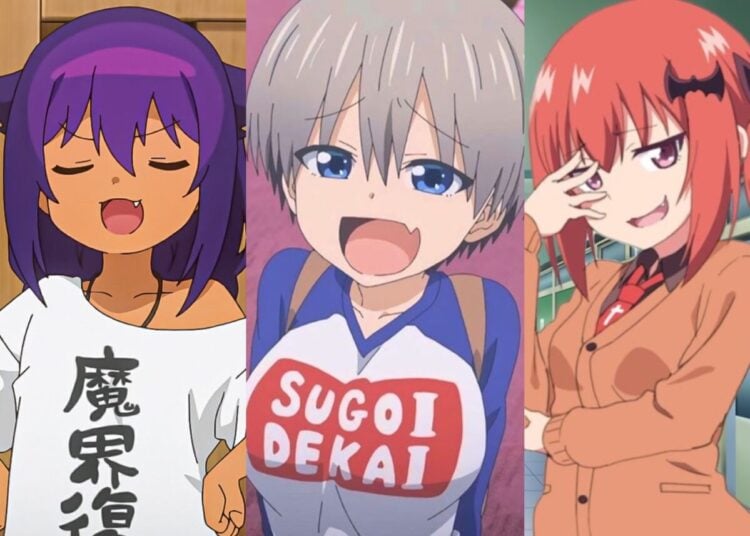My Otaku Reconsideration
Portrait of an Otaky #1187
by Peter R. Payne
Note: the following is an article I wrote way back in 1994 for an anime magazine. I consider it quite out of date, but I submit it for your review anyway. Feedback is always welcome.
Italian pop writer and musician Frankie Bit defines the otaku as, “…the avant-garde exploring the digital world dominated by new technologies, communicating to excess…[We] grew up with television and electronic media, and now use them as [our] natural habitat where every desire can be gratified.”
In Japanese, otaku, which is a polite word for “you” or “your family,” now refers to a social class of obsessive, self-absorbed youths and would-be youths who fixate on pop culture icons and live for whatever rush they (we) get from that fixation. Idols, animation, comics (*manga*), adult video actresses: there is no limit to what can be otakified.
The movement came into its own in 1989 when Tsutomu Miyazaki was arrested for a killing spree in which four young girls lost their lives over an eleven-month period. He was considered an otaku due to the large collection of softcore Japanese animation films that were found in his apartment (over six thousand videos), and the label was stuck forever. (Amends Bit, “…but he was not a real Otaku because he spent too much time outside his house.”)
There are a few core genres of otakus (also called *otaku-zoku* “the otaku race” or simply *the otaky*). The comics & animation category includes everyone from the kid who still collects Dragonball comics religiously even though he turned thirty last August to the spokesmen for all otakus everywhere, the Japanese otaku/TV idol Taku Hachiro. Monster movie otakus can name the directors of all 22 Godzilla films and are honorary members of the U.N. Anti-Godzilla Force. People who never gave up on Star Wars even during the dark years of the late Eighties are the SF otakus. Military otakus are out there, but you can’t see them — they’re watching you right now with night-vision goggles. Then there are adult video otakus. I’ll bet the names Ai Iijima and Yuki Hitomi mean little to you, but there’s a secret fraternity of people reading this whose eyes just wavered with recognition.
These are not the only otaku types in Japan. There are Disneyland otakus, UFO catcher otakus (you know, those games where you grab the stuffed animal — I’ve been in Japan too long to know what they’re called in real English), ski otakus, ski-gear otakus who don’t ski but who love to put the best ski equipment on their 4×4, and so on. I’m sure you get the idea.
I am a cross-over otaku, a common-enough breed in these confused times. I am into animation, manga, and various idols. I translated a 200+ page Orange Road novel into English because, well, no one else was going to do it. I am an avid Macintosh user, but a computer and an Internet connection among my ilk are like a mask and snorkel to scuba enthusiasts — they’re just the tools that make it all possible, and don’t really count.
I awoke as an otaku at the end of high school, one day realizing that everything that I had ever done in my life — watching Speed Racer and Star Blazers, etc. — all had to do with Japan. Four years of college later, I came to Japan to make my name as a teacher of English as a foreign language.
I arrived in October of 1992, just in time to see the leaves turn red throughout the country. That’s one thing I hadn’t been expecting to see before I came here: a country full of nature, full of great big trees, that explode with color in Spring and Fall. Other things I didn’t expect to see were old men, urininating freely outdoors, beer vending machines, or, well, *all that nudity*.
I live in Gunma prefecture, right smack in the center of the main Japanese island of Honshu. Gunma’s population hit the two million mark in 1994 — so Coca Cola printed “Congratulations Two Million Gunma” on all cans sold in the prefecture. It’s famous for strong wind in the winter, strong women all the time, and a jelly-like boiled potato substance called *konnyaku* that is famous for gaijin not being able to eat it.
While I am an otaku, I am different from a lot of otakus in that I pursued my reverence for the country to the point of studying Japanese for eight years, and actually coming the country to live. Since one of the characteristics of otakus is that we consider ourselves one of the few “true” otakus remaining, I am in a position to look down the noses of other, lesser, otakus as being mere Japanophiles. This is what I base my sense of self-worth on.
I think I was pre-determined to be what I am. My grandmother had an extreme personality: she was a civil rights otaku before anyone else. My sister inherited my grandmother’s extremeness of personality in the form of religion. Practical one that I am, I got an obsession with Japan.
I know many other otakus in Japan, both gaijin and Japanese. “Leon” got interested in Japan like me, over the course of several years, without actually realizing it until he got to college and studied some Japanese. He came to Japan in 1992 as an English teacher, but managed to climb out of the black pit of teaching English conversation and land a job translating and doing some technical writing with a company in Harajuku, Tokyo. His favorite thing in the world is the world of Japanese adult video idols — he has a huge collection — and he has never forgiven me for meeting Yuki Hitomi (the idol who wears the apron and nothing else on channel 12’s late-night sex show “Gilgamesh Night”) at a CD ROM exposition without him.
“Hiroshi” was a student of mine. We found out one day that we had similar interests a few days after Sailor Moon “R” (the second series) ended. He mentioned his favorite TV show had aired its last episode, I knew what he was talking about, and we were instant brothers. Hiroshi’s main otaku “thang” was games for Nintendo’s Super Famicom, but he has recently upgraded to a Sony Playstation, which allows him to enjoy newest Mobile Suit Gundam fighting simulator. Lucky geek.
Finally, there is “Mark,” who was converted by watching subtitled Japanese cartoons the rest of us never got a chance to see living in Hawaii. He got a chance to live his dream in Japan, translating anime for a major company involved in bringing anime to the masses in the U.S. He uses the income from this to feed the runaway fire that is his Japan fetish, buying laser disc boxed sets of such old series as *Giant Robo*, *Science Ninja Team Gatchaman* and *Lupin III* as he continues his search for the perfect collection.
This is what we are — a subset of Generation X, the Otaku. Not really a “nineties” thing, but this is when we chose to let our presence be known. Not really a Japan-only thing, but we naturally turn to Japan as the mother-protector of what we are. Not dangerous, except in the most unthinkably extreme cases. Not losers — just not afraid to glorify the mundane and accept the positive images that are fed to us so willingly by society. We are the masters of our universes, we otaku, and more in touch with our inner selves than most people you can name. If we’re anti-social, it’s your own fault for pulling all that crap on us back in high school.















